
The Noctuidae, commonly known as owlet moths, cutworms or armyworms, are a family of moths. They are considered the most controversial family in the superfamily Noctuoidea because many of the clades are constantly changing, along with the other families of the Noctuoidea. It was considered the largest family in Lepidoptera for a long time, but after regrouping Lymantriinae, Catocalinae and Calpinae within the family Erebidae, the latter holds this title now. Currently, Noctuidae is the second largest family in Noctuoidea, with about 1,089 genera and 11,772 species. This classification is still contingent, as more changes continue to appear between Noctuidae and Erebidae.

The Pterophoridae or plume moths are a family of Lepidoptera with unusually modified wings. Though they belong to the Apoditrysia like the larger moths and the butterflies, unlike these they are tiny and were formerly included among the assemblage called "microlepidoptera".

The Lymantriinae are a subfamily of moths of the family Erebidae. The taxon was erected by George Hampson in 1893.
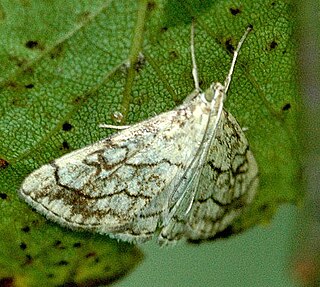
Evergestinae is a fairly small subfamily of the lepidopteran family Crambidae, the crambid snout moths. The subfamily was described by H. Marion in 1952. It contains roughly 140 species on all continents and continental islands. Evergestine moths resemble Pyraustinae; however, the male genitalia have a long uncus and long, slender gnathos. The larvae feed mostly on Brassicaceae.
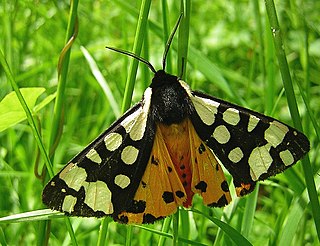
The Arctiina are a subtribe of moths in the family Erebidae.

Cuculliinae is one of the larger subfamilies of moths in the family Noctuidae.

The Aganainae are a small subfamily of moths in the family Erebidae. The adults and caterpillars of this subfamily are typically large and brightly colored, like the related tiger moths. Many of the caterpillars feed on poisonous host plants and acquire toxic cardenolides that make them unpleasant to predators. Like the closely related litter moths, the adults have long, upturned labial palps, and the caterpillars have fully or mostly developed prolegs on the abdomen. The Aganainae are distributed across the tropics and subtropics of the Old World.

Calliergis is a genus of moths of the family Noctuidae. The genus was erected by Jacob Hübner in 1821.

Oxycnemis is a genus of moths of the family Noctuidae. The genus was erected by Augustus Radcliffe Grote in 1882.
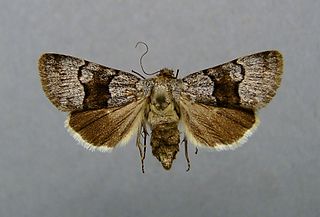
Sympistis is a genus of moths of the family Noctuidae. The genus was erected by Jacob Hübner in 1823.
Sympistis knudsoni is a moth of the family Noctuidae first described by James T. Troubridge in 2008. It is found in the US state of Texas.

Heliothinae is a small, cosmopolitan subfamily of moths in the family Noctuidae, with about 400 described species worldwide. It includes a number of economically significant agricultural pest species, such as Helicoverpa armigera and Helicoverpa zea.
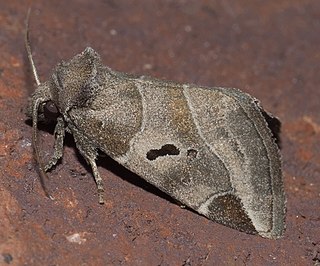
Stiriinae is a subfamily of owlet moths in the family Noctuidae. There are more than 20 genera and 130 described species in Stiriinae.
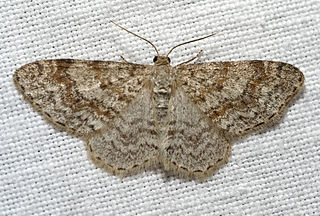
Asthenini is a tribe of geometer moths under subfamily Larentiinae first described by Warren in 1893. The tribe has been combined with Eupitheciini in the past, most notably by Jeremy Daniel Holloway in his work The Moths of Borneo.
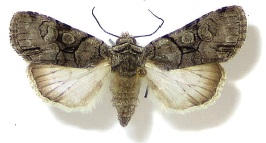
Sympistis forbesi is a moth of the family Noctuidae first described by Brigette Zacharczenko and David L. Wagner in 2014. It has been recorded from the US states of Iowa, Illinois and Minnesota and is believed to be extirpated from the eastern portion of the range in New York and New Jersey.

Glaphyriinae is a subfamily of the lepidopteran family Crambidae. It was described by William Trowbridge Merrifield Forbes in 1923. The subfamily currently comprises 509 species in 75 genera.














